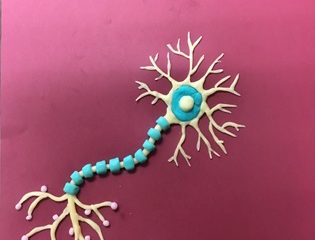Here are are a few stories that I have found interesting and I hope you will, too!
Interesting extensions on functional MRI (fMRI) on Brain activity
“Now a Stanford University-led team has solved the mystery, and in doing so has discovered a new way to make fMRI signals based on increased blood flow even more useful.”
When fish she their reflections they become feisty!
“But when you are fighting with a mirror, your opponent is perfectly in time. So the subject fish really is not seeing any sort of reciprocal response from their opponent.”
Resilience factor seems to protect mice from stress
“This search for small molecules that augment the actions of deltaFosB holds promise for development of a new class of resilience-boosting treatments for depression,” said NIMH director Thomas R. Insel. “The project, funded under the American Recovery and Reinvestment Act of 2009, is a stunning example of how leads from rodent experiments can be quickly followed up and translated into potential clinical applications.”
“Today, mobile phone use has become much more prevalent and it is not unusual for young people to use mobile phones for an hour or more a day. This increasing use is tempered, however, by the lower emissions, on average, from newer technology phones, and the increasing use of texting and hands-free operations that keep the phone away from the head.”
Pesticide exposure may contribute to ADHD
“The authors conclude that exposure to organophosphate pesticides, at levels common among U.S. children, may contribute to a diagnosis of ADHD.”




4 Comments
MeredithS · May 19, 2010 at 4:25 pm
I found the “cancer from cell phones” really interesting. My friend’s dad who is an ear doctor said he has seen a huge increase of tumors in the right ear, in which he assumes is related to cell phones typically being held up to the right ear. I feel like with the new ear pieces that sit in people’s ears all day, that number will definitely increase in the next few years. But interestingly enough, I don’t think this is reason enough that people would give up their cell phones.
EspieW-PSY340 · May 22, 2010 at 6:28 am
With many more children on attention deficit disorder medication today, it would be great to know what to look for in how to prevent or protect young children in developing ADHD. I have a child that has used medication for ADD to help focus in the classroom. I don’t recall him being exposed to pesticides, and I don’t remember being exposed to pesticides during pregnancy. However, any new development for ADHD prevention is, at least, positive in awareness for parents and/or future parents.
Bianca Vasvani · May 23, 2010 at 6:15 pm
The article on cell phone use and cancer was interesting. In today’s society, people are always on their cell phones whether it is for business or for social purposes. Even with the studies coming out about cell phone use and cancer , I do not think people will start to limit their cell phone use.
I found it interesting that a there were suggestions of an increased risk of glioma, and much less so meningioma in subjects who reported usual phone use on the same side of the head as their tumor and, for glioma, for tumors in the temporal lobe. It was also interesting to not that there are ways to lower the emissions with the newer technology phones and the option of texting and talking on the phone hands free.
Bianca Vasvani · May 23, 2010 at 6:24 pm
The article on pesticide exposure found that exposure to organophosphate pesticides may be associated with increased risk of ADHD in children. Since this is prevalent in many children it is important to be aware of the risk factors associated. The organophosphates may have effects on a child’s neural systems, which can contribute to various ADHD type behaviors.
Although more studies and research needs to be done on the direct effects of these organophosphates, it is important to note any of these findings in hopes to reduce children’s probability of having an increased risk of ADHD.
Comments are closed.